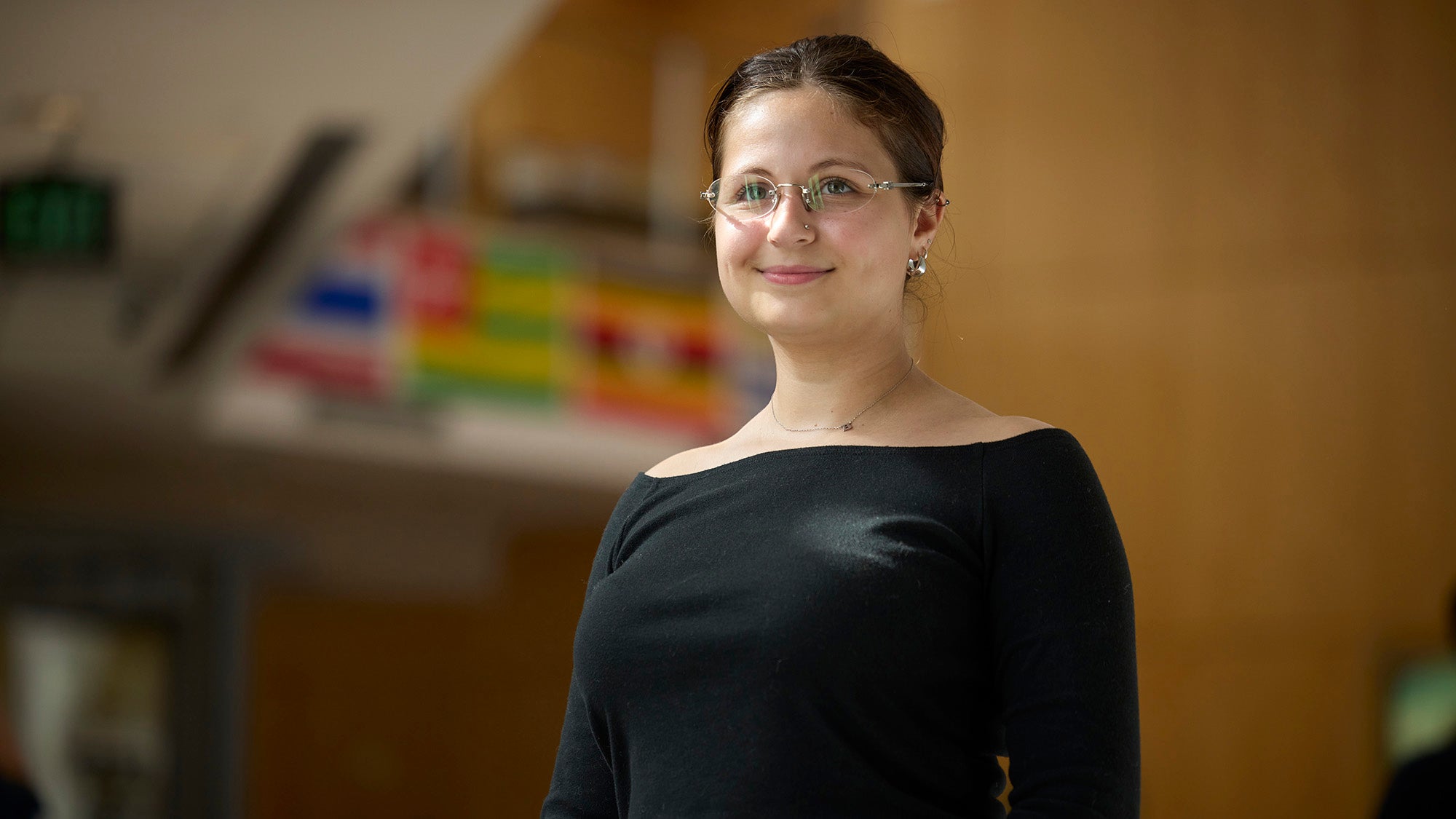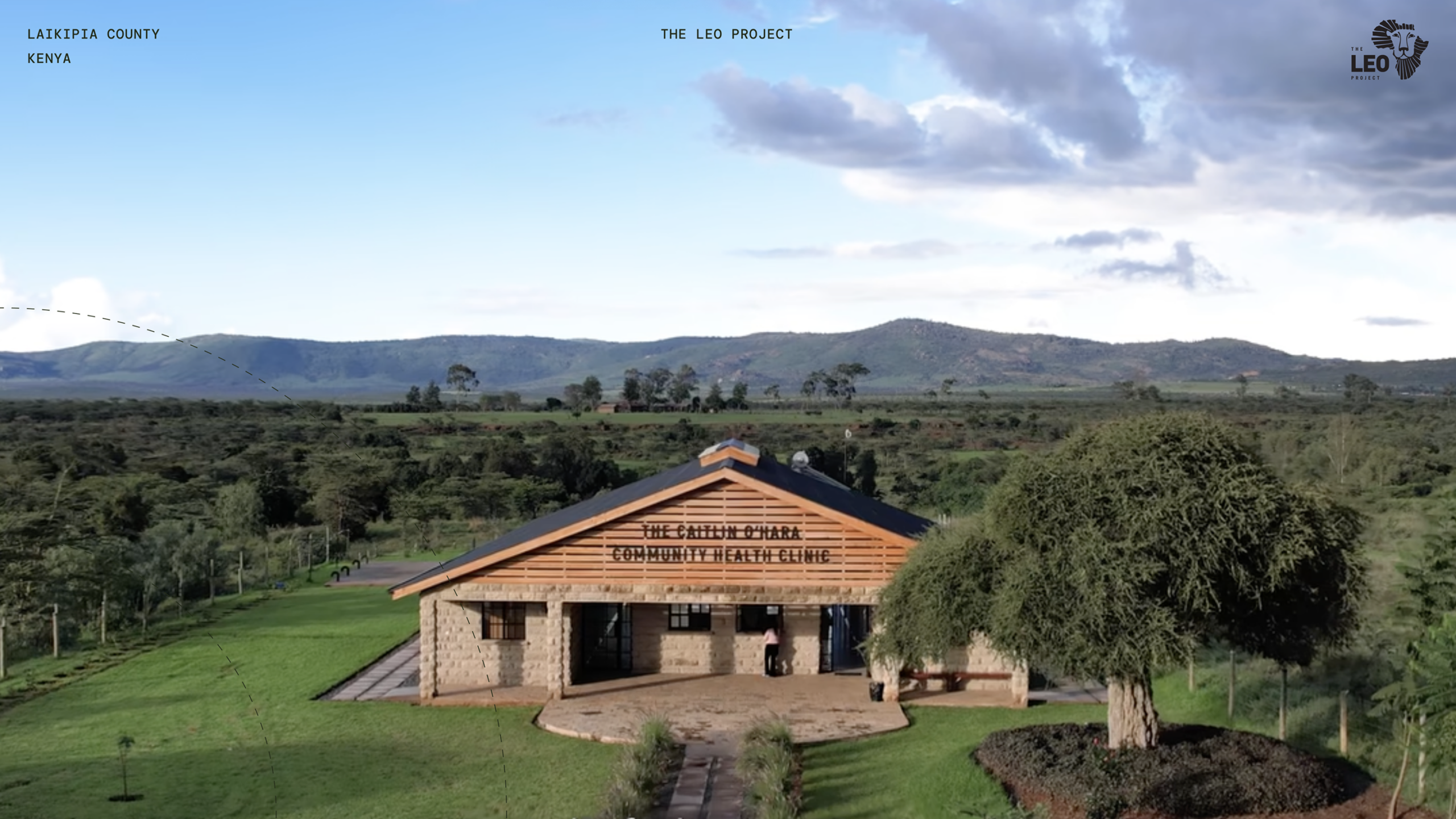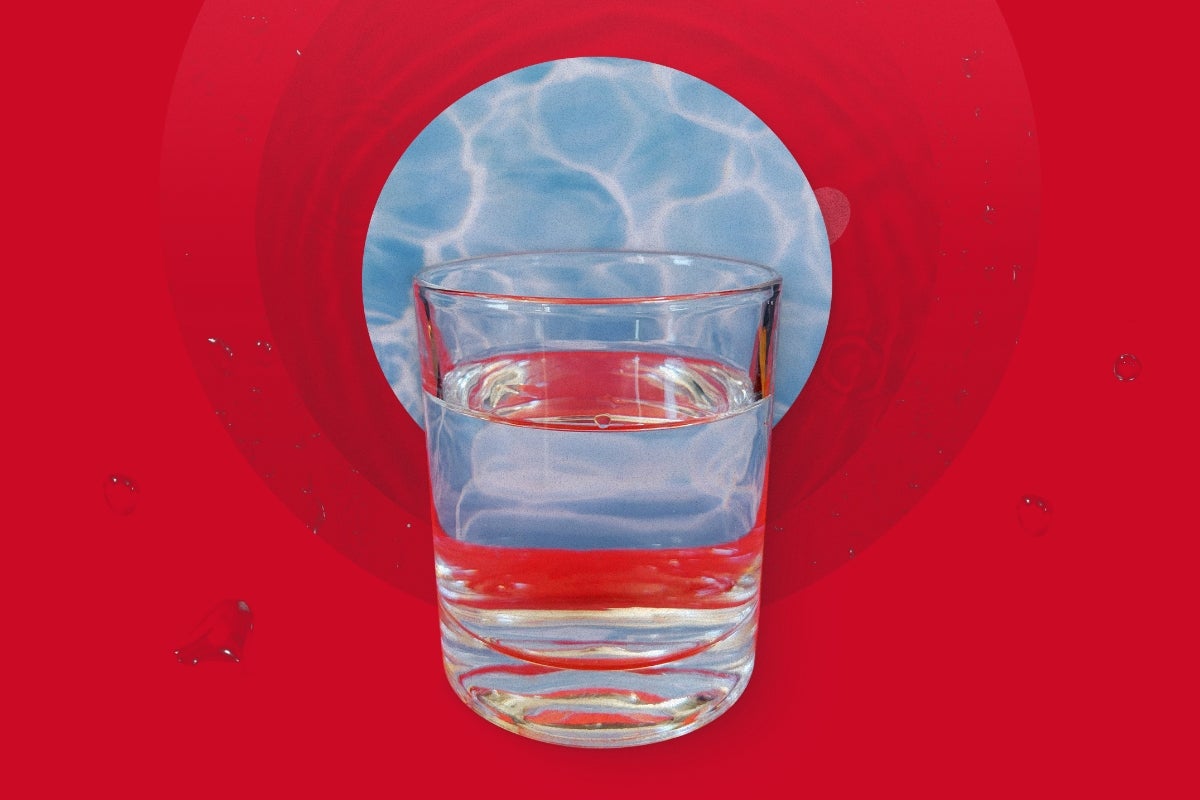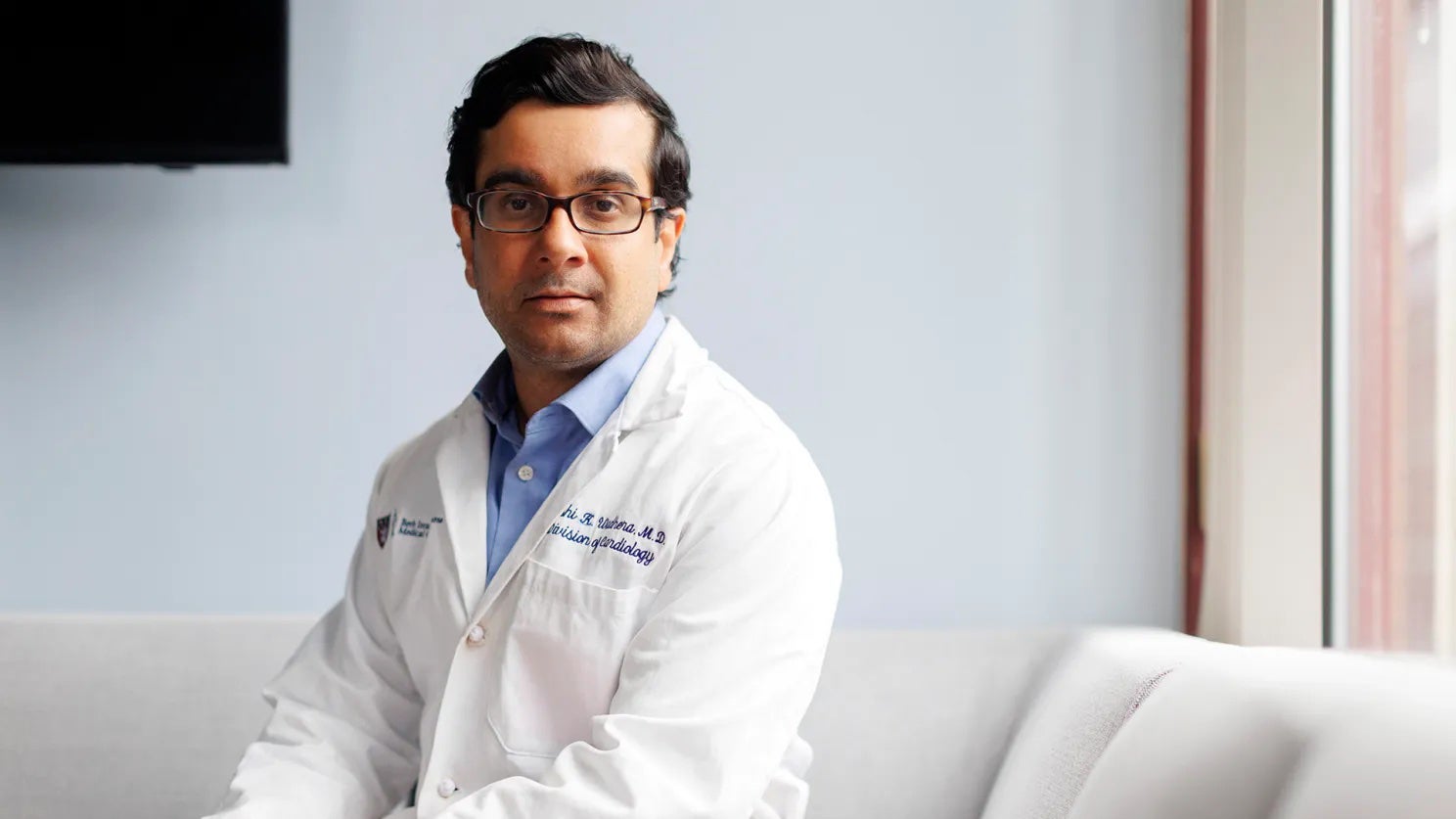Computational biology student aims to bring tech skills to the health care arena

Isabella Pabón, SM ’26, once thought she’d be a writer. Now she’s on track to earn a master of science in computational biology and quantitative genetics (CBQG) from Harvard T.H. Chan School of Public Health. Here, she discusses her path to public health, and how she hopes to use the skills she’s learning at the School to develop innovative technological solutions that improve people’s health and lives.
In high school I was very interested in literature. I thought I was going to be a writer. My dad is a software engineer and back then I wasn’t sure exactly what he was up to everyday as I only saw him coding. He suggested that I come with him to a convention in San Diego about cloud native computing [relating to software crafted on a cloud platform] to learn more about what he did. I said sure, why not, because I was a teenager and the trip was getting me out of school and going somewhere new.
I met such inspiring women at the convention. I was of the mindset that computer science was a very male-dominated field and I was hesitant about putting myself in that position. But I got a chance to meet one-on-one with a woman who was pretty high up in her company and I asked her, ‘What do you like about computer science? What drives you?’ And she said, ‘I’m on the forefront of new things, I get to talk to real people, I get to make something and show it to people, and they love it.’ And I thought, I want to do this, to build things, to look people in the eye and say, ‘I built this for you, and I hope you love it.’ I realized that computer science was actually kind of cool.
As a computer science major at Worcester Polytechnic Institute, one of my projects was in Puerto Rico, where I got to work with a small museum, and, with a team of three other students, created a digital archive system and website for them in just seven weeks. Their physical archive system had been gravely damaged because of Hurricane Maria, and getting to help them was really impactful for me because I’m Puerto Rican. At the end of the project, they were crying and I was crying because it was so emotional.
Although I love computer science, what I really love is impacting people and making change in the world. I talked to one of my mentors at WPI and she said, ‘Why don’t you try computational biology? It seems to combine two of your passions, computer science and trying to figure out how to make changes in the health care system.’ So I applied to several programs.
While I was considering where to go I joined a meeting with John Quackenbush [professor of computational biology and bioinformatics] and found his energy so inspiring. He gave a brief summary about the CBQG program and I really liked its combination of epidemiology and genetics and biology and computer science, and I liked the idea of being a well-rounded individual and well-rounded student—which is ultimately what I really love about the CBQG program at Harvard Chan School. I’m not just learning about genetic analysis—I’m also learning about topics such as ethics, sexuality, and race in public health. I realize now that there’s so much I could do in the policy arena.
Currently I’m working as an intern with a startup called Quome that uses an AI-driven platform that helps developers rapidly create apps that meet specific regulations and standards—like data privacy laws or security policies—particularly in sensitive domains such as health care, life sciences, and finance. I work on the platform team to provide back-end support to the product, which includes managing the company’s database and other cloud applications.
Over the summer I worked with another startup called Archangels. I met the CEO when she spoke in my class on digital health. Her company is a caregiving resource—a place where caregivers can get a score to measure how intense their roles are, and to help them find resources, community, and a voice. After her talk I told her I would love to work with her. From that one conversation, I got hired. I helped them build a dashboard both for organizations and individual caregivers.
For my thesis, I’m looking into how AI can be used not just as a technical or analytical tool, but more as an empathetic and advocacy tool in menstrual and reproductive health contexts, among individuals who are afraid of getting care or who don’t think they will be heard or understood. My plan is to integrate empathy, cultural sensitivity, and privacy-centered design principles into an AI prototype modeled after the supportive role of a doula, and then to analyze whether this system could improve patient confidence in managing their health and their engagement with the healthcare system.
I was someone that never had a big group of friends. Now I have 30 friends—my fellow students in the CBQG program—who are so like-minded and thoughtful. We help each other with homework and we have events every season. We just had a fall potluck where everybody brought things from their culture and we played board games. Over the summer, we went on a trip together to New Hampshire, where one of my classmates has a house.
Quick hits
Something people might not know about me: I struggled with math in high school. If I could go back in time and tell 18-year-old me that I would be going to Harvard, she would not believe me. It’s a common assumption that you have to be naturally intelligent to get into a place like this. But intelligence isn’t what I think of when I think of how I got to Harvard. I think of grit. I work very, very hard. And I have really great people around me. For instance, I’ve had meetings with John [Quackenbush] where I’ve told him I’m struggling and I don’t know if this is right for me. And he has said, ‘Why are you here?’ And I said, ‘I’m here because I want to change the world.’ And he said, ‘Then you belong here.’
Hobby I’d recommend: Bird-watching. I’m a person that struggles with stress and anxiety, and I’ve had many experiences where I feel very overwhelmed. I had tried activities such as meditating, but it didn’t seem to work for me. A few months ago, I bought this bird-watching book. I thought it might be something fun I could do and would help me de-stress. The book shows you how to match your breathing with the tempo of a bird’s call, which I found to be so much more freeing than I initially thought it would be. So now, when I’m really stressed with work or with my projects, I go outside and sit on a bench, eat an apple, and look for birds.


